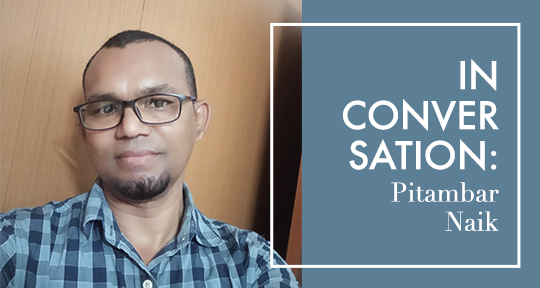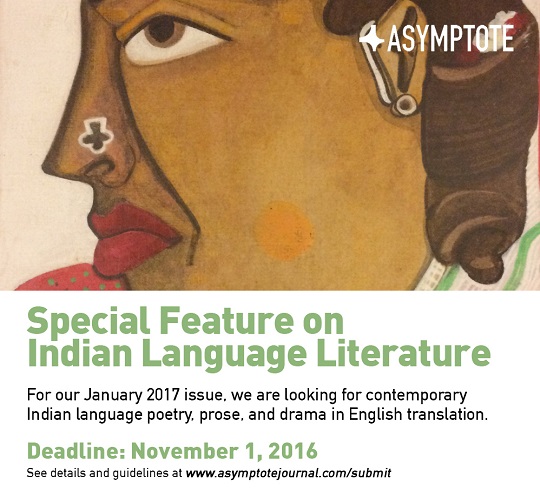Poetry in the Odia language, writes poet-translator Pitambar Naik, “has a long way to go and [is a] landscape that hasn’t yet been explored, touched and [is] minimally discussed. Odia poetry is . . . a promise to the future.” It is in this very prodding that Fury Species: Odia Poetry of Resistance (Hyderabad, India: Rehor Publisher, 2023) came to be. Featuring thirty nine poets from the Indian state of Odisha, the anthology is suitably bisected into sections: ‘Not the Raga but the Rage’ and ‘No Reticence but Resistance.’ Translation of poetry from the Odia into English becomes imperative in this decolonial endeavor. As Diptiranjan Pattanaik proclaims in Changing the Terms: Translating in the Postcolonial Era (2000), “The act of translation is central to the formation of an Odia literary canon.” Naik continues: “Let the world know the people in these poems, and how they’ve suffered for centuries.”
In this interview, I conversed with Naik on his anthology on Dalit protest poetry, his manifold creative process in translating Odia-language poets from the margins, and the state of literature among the Dalit-Bahujan, among other things.
Alton Melvar M Dapanas (AMMD): First of all, congratulations on Fury Species: Odia Poetry of Resistance published in October by Hyderabad-based Rehor Publisher, the first anthology of translated poetry from the Odia language. Apart from poetry that carries “the message for the emancipation” of the oppressed, what are other motive forces which prompted the creation of this anthology?
Pitambar Naik (PN): There are prolific writers producing quality literature in Odia and many of them have been translated into English, but many of these translations are abysmal renditions of the source material, and there are simply too few of them. As a result, the outer world is unaware of Odia literature. Translation is a subject that interests few, particularly in Odisha, and those writers who are translated come from the privileged high caste group. We can’t bypass the force of the caste system, which sends shockwaves through every facet of life.
Literature of the suppressed and alienated, the Dalit-Bahujans, has been strategically censored from telling, retelling, and translation. The objective behind the anthology Fury Species was to translate, interpret, and propagate the writings of the oppressed groups from Odisha. This was the driving force that fuelled me to translate many established poets like Basudev Sunani, Akhil Nayak, Kumar Hassan, Sanjay Kumar Bag, Hemanta Dalpati, and others. Fury Species also houses other eminent poets such as Ashutosh Parida, Shatrughna Pandab, Pitambar Tarai, Lenin Kumar, and more who have been prolific in creating progressive literature.
AMMD: I have never seen an anthology with contributors coming from such varied backgrounds. Fury Species’ contributors include filmmaker Surya Shankar Das, linguist Akhil Nayak, scientist Ashutosh Parida, veterinarian Basudev Sunani, lawyer Debendra Lal, and journalist Kumar Hassan. Other contributors hail from the fields of economics, medicine and pharmaceuticals, social work, and folkloric studies. What does this reveal about Odia poetry? READ MORE…





